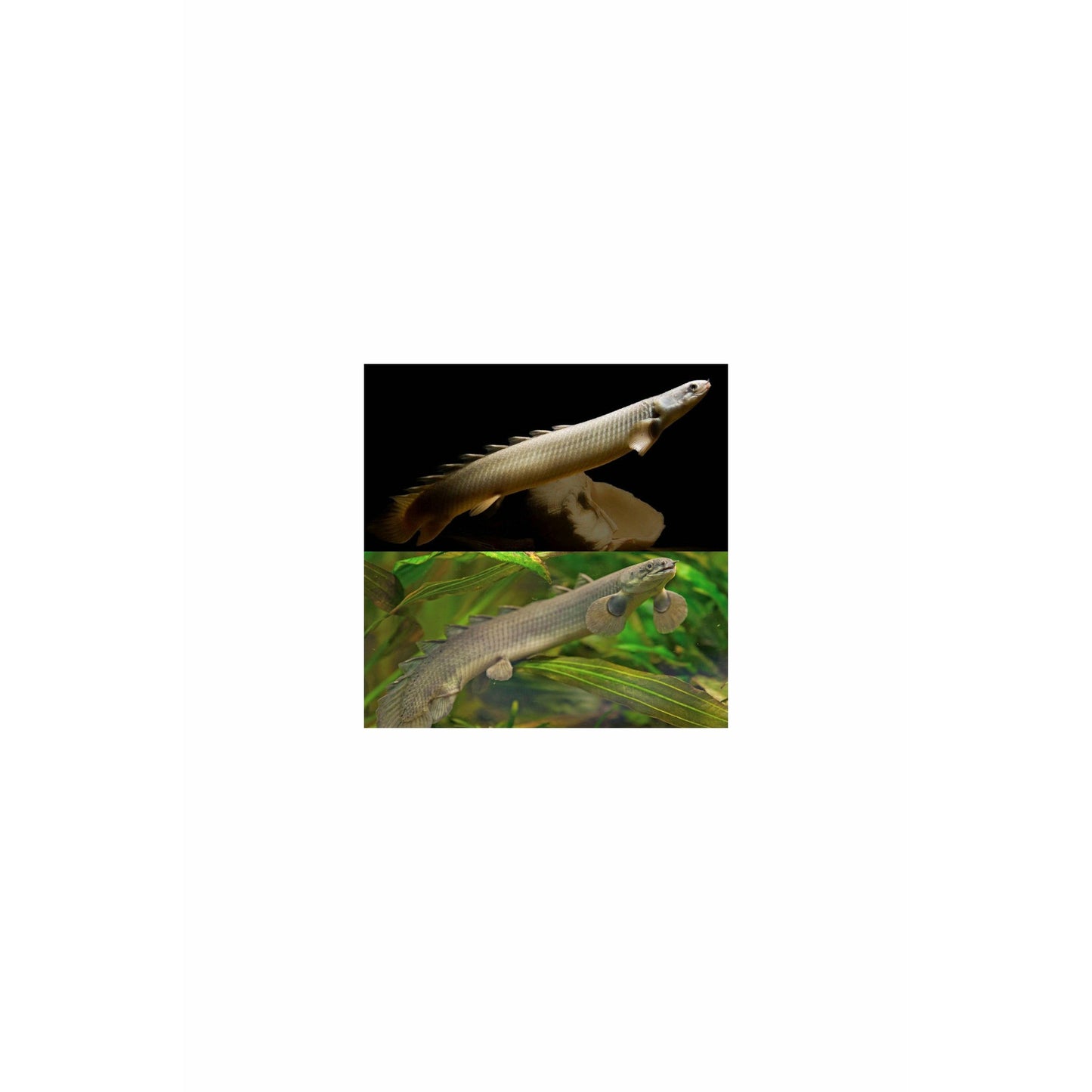- Product
- Green senegal 5"
Green Senegal 5"
Couldn't load pickup availability
The Green Senegal (Polypterus senegalus) is a very rare color morph of the more common Senegal Bichir, an ancient species (reportedly over 200 million years old) that is widespread throughout much of Africa. This fish is very eel-like in appearance and is sometimes referred to as a "dinosaur eel," although it is not a true eel. It is an extremely hardy species that is very versatile. All bichirs posess a modified swim bladder that allows them to breathe atmospheric air and live in water that is very low in oxygen. In fact, they are often able to live out of water for extended periods of time as long as they remain moist.
The Green Senegal Bichir is primarily nocturnal, but will often become active during daytime hours once established in an aquarium with plenty of driftwood, rockwork, and other hiding places. It is not a particularly aggressive fish, but it will eat fish and invertebrates that are small enough to be considered prey. It will generally ignore all other tank mates. Adult bichirs can sometimes be territorial with one another, but they just as often will share hiding places and be completely peaceful with one another. While it is an extraordinarily hardy species, The Green Senegal Bichir requires a fairly large aquarium with plenty of floor space and powerful filtration.
Bichirs are not afraid to jump or leave the water, so a tight-fitting lid is necessary to prevent them from escaping the aquarium. They also must be able to come to the surface to breathe occasionally.
Feeding is very easy for the unfussy Green Senegal Bichir. It requires a varied diet for optimal health, but will readily accept virtually all high-quality live, frozen, and dry foods of appropriate size.
What We Like About This Fish:
- Extremely rare color morph of a classic species
- Exceptionally hardy and adaptable.
- Unfussy regarding diet
- Ideal "community" large fish/predator
- Will not eat plants
RECOMMENDED TANK PARAMETERS:
- Temperature: 75° - 82° F (24° - 28° C)
- pH: 6.2 - 7.8
- KH: 5 - 20 dKH
- Minimum tank size: 90+ gallons
CARE GUIDELINES:
- Diet: Carnivorous. Requires a variety of meaty live, frozen, and dry foods
- Social behaviour: Generally solitary, peaceful with species too large to be considered prey




